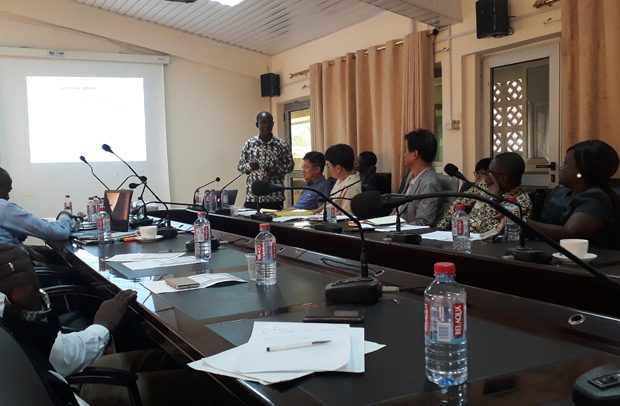Participants at the workshop
Korea International Cooperation Agency (KOICA), in collaboration with the Ministry of Employment and Labour Relations, has organized a one-day policy workshop on the Cooperative Law of Ghana.
The forum brought together stakeholders from various state agencies, including the Department of Cooperative (DoC), National Board for Small Scale Industries (NBSSI), Ghana Cooperative Council (GCC), Ghana Cooperative College, students, policy makers and NGOs. Also present at the workshop were experts from Korea.
The law, which has not seen any amendment since its inception in 1968, is pregnant with several irregularities and aspects which are no longer relevant and consistent with global trends.
There have been attempts to amend the law, but it has all failed. The most recent attempt was in 2017, but the bill again failed to get the approval of parliament.
The workshop saw KOICA presenting a number of recommendations to stakeholders as part of efforts at revising the current law and policies governing cooperatives in Ghana.
The recommendations were based on outcomes of studies and comparative analysis of vibrant cooperative acts of selected countries with the most recent cooperative bill of Ghana (Bill 2017).
It is expected that the consensus reached at the policy workshop would form the basis for the adoption and passage of an Act which would be favourable to the cooperative movement in Ghana, especially agricultural cooperatives, since agriculture contributes about 20% of the national GDP and employs about 40% of the population.
The joint policy advisory initiative is a component of a project funded by the Government of the Republic of Korea to develop the capacities of Farmer-Based Cooperatives and Organizations in the three northern regions of Ghana. The Farmer Based Cooperatives and Organizations project, which is being implemented by KOICA in collaboration with the Ministry of Employment Labour Relations and the Department of Cooperatives, began in 2017 with a grant of $6,180,000 to be disbursed over a 42-month period.
FROM Eric Kombat, Tamale


